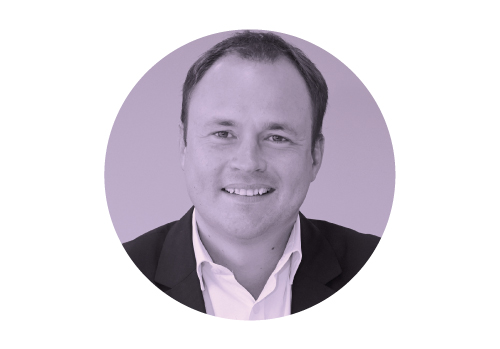Until recently, there were two bodies representing the independent healthcare sector:
- The Association of Independent Healthcare Organisations (AIHO) represented independent healthcare providers working with private patients;
- The NHS Partner Network (NHSPN) represented independent healthcare providers working with NHS patients sent for treatment into the independent sector.
From 1 June 2018, there will be one – currently called the NHSPN. Is this change of any real significance to patients? And, if so, what?
We caught up with David Hare, Chief Executive of the NHSPN, to ask.
inQuisit: What’s the thinking behind the change?
David Hare: Traditionally AIHO and NHSPN represented clearly defined sectors of the independent healthcare industry. As the industry has evolved, those sectors are increasingly overlapping – it’s the way the market has developed. Consequently, members want to see a single entity take the lead and represent the whole market of independent healthcare providers, including both NHS-funded and privately-funded services.
inQ: And it’s fair to assume that pulling the whole independent sector under an umbrella with NHS in its title implies that these hospitals are all set to be part of one single mixed economy in healthcare?
DH: The NHS has always been a mixed economy with, for example, GP services, dentistry, optometry and community pharmacy services having a long history of being provided by independent contractors to the NHS. That said, we’re currently reviewing our branding and may or may not end up still called the NHSPN – that will depend on the results of our survey of members and stakeholders.
inQ: What positive difference is it hoped it will make for patients?
DH: We hope it will offer a stronger, united voice on behalf of the independent sector – which, in turn, will benefit patients. The sector currently provides healthcare for millions of people in the UK each year, whether the treatment is paid for by the NHS, private medical insurers or by the patient under a self-pay arrangement. It’s a key partner to NHS providers and commissioners, working in tandem with NHS services, at the same time as developing and providing services to other payor groups.
Our perception is that patients are becoming (rightly) ever more demanding about the quality of care they receive. We think now is the right time, then, to create one single organisation to represent the whole independent sector, a body capable of speaking coherently for all its members, and working to ensure standards are met consistently.
inQ: Recently, the Care Quality Commission (CQC), ‘looked at 206 private hospitals in what was the first comprehensive review of the sector’, as reported here by the BBC. It rated 70% as ‘good or excellent’ – which leaves 30% less so. The CQC talks about ‘the “old-fashioned” approach to consultants which led to a lack of monitoring and checks’, says the BBC. Here’s a link to the CQC report, and to NHSPN’s response on your website.
Will your new set-up have a positive impact here, do you think?
DH: We hope our expanded remit will offer a stronger, united voice on behalf of the independent sector – both reassuring the public of the high-quality care delivered by the private sector as well as working with providers to ensure we drive up standards across the sector so that those performing less well catch up with the top performers.
There were some real positives that came out of the CQC report: it found that independent hospitals overall deliver high quality care to both NHS and private patients, with clear evidence that they are consistently improving their services.
Where any areas for concern were identified, the CQC found independent hospitals were quick to respond to improve things, and no hospital was deemed inadequate.
But we’re not complacent. We’re working hard, within the independent sector, to improve clinical governance processes. The Private Healthcare Information Network (PHIN), for instance, is collecting data on every consultant who works in the independent sector. It’s also vital that both independent hospitals and NHS Responsible Officers play their part in ensuring information on consultants is shared, especially where concerns have been reported.
inQ: So, in your opinion, are the safeguards and governance mechanisms comparable, for both NHS and independent settings?
DH: All independent providers are regulated by the CQC, same as the NHS. They should, therefore, be operating to the same quality and safety standards as the NHS. The CQC also plays a key role in supporting patients. There are differences – such as no independent A&E departments, for instance – so direct comparisons can sometimes be tricky. But the independent sector today compares favourably with the NHS for its CQC ratings.
In all, 70 per cent of acute independent hospitals currently have ‘good’ or ‘outstanding’ CQC ratings. Independent providers report all serious incidents to the CQC, and the sector is actively working right now with NHS England to expand this level of reporting – through the National Reporting and Learning Systems (NRLS). The independent sector is also taking part in a number of clinical audits – and we’re looking to expand that number.
Of course, any clinical professional who knowingly carries out unnecessary interventions will face disciplinary action from the General Medical Council (GMC), and may be struck off, or indeed prosecuted. It makes no difference whether they’re working within the NHS, or in the independent sector, nor who’s funding that work.
The horrific criminal actions of Ian Paterson brought to light failings across the healthcare system, in both the NHS and independent hospitals. We welcome the Bishop of Norwich’s Inquiry, and look forward to working with him to develop system-wide solutions to safeguard all patients across all settings.
inQ: And we look forward to supporting that process, wherever possible, too…
Thank you for your time, David.

